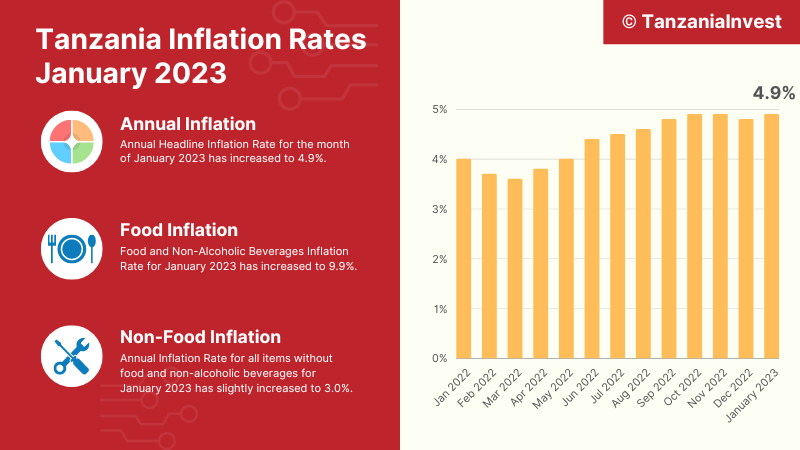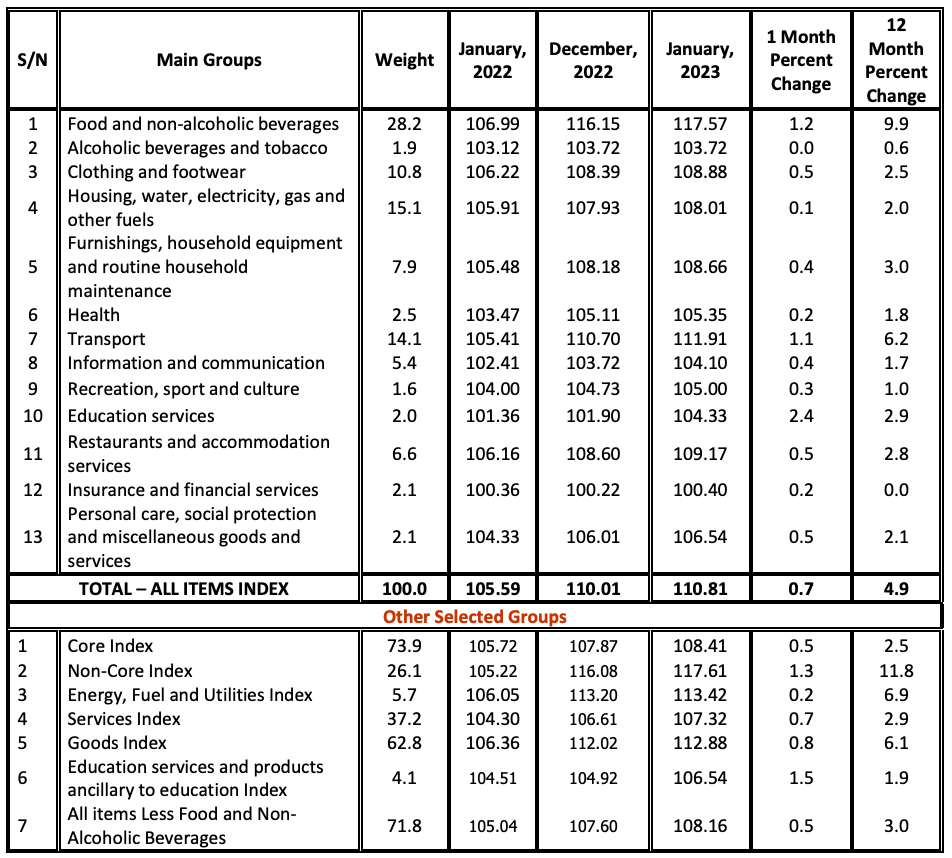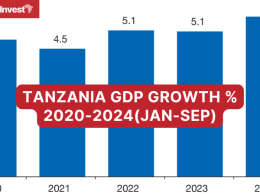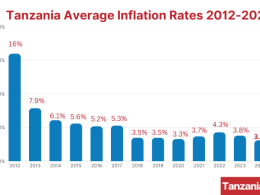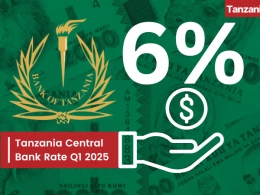The National Bureau of Statistics of Tanzania (NBS) revealed that the Annual Headline Inflation Rate for the month of January 2023 has increased to 4.9% from 4.8% which was recorded in December 2022.
Meanwhile, the overall index went up from 105.59 recorded in January 2022 to 110.81 in January 2023.
Food and Non-Alcoholic Beverages Inflation Rates
The Food and Non-Alcoholic Beverages Inflation Rate for January 2023 has increased to 9.9% from 9.7% which was recorded in December 2022.
On the other hand, the Annual Inflation Rate for all items without food and non-alcoholic beverages for January 2023 has slightly increased to 3.0% from 2.9% which was recorded in December 2022.
Changes in Tanzania National Consumer Price Indices (NCPI) for January 2023, (2020 = 100)
Tanzania Monthly Inflation Rate – January 2023
The National Consumer Price Index between December 2022 and January 2023 has increased by 0.7%.
The increase in the overall index is attributed to the price increase for some food and non-food items.
Some food items that contributed to an increase in the index include: wheat grains by 2.5%, rice (2.9%), maize grains (5.0%), wheat flour (0.6%), sorghum flour (2.9%), maize flour (3.3%), fruits (0.6%), vegetables (3.3%), round potatoes (6.2%), sweet potatoes (6.3%), fresh cassava (4.3%), cocoyam (0.9%), cooking bananas (2.7%), dried beans (5.5%), dried lentils (4.3%), cowpeas (6.7%) and dry cassava (7.0%).
Some non-food items that contributed to an increase in the index include: garments for men (0.2%), garments for women (0.5%), garments for infants (0.5%), school uniforms (0.9%), footwear for women (0.8%), actual rentals paid by tenants (0.2%), cooking gas (0.1%), kerosene (0.9%), firewood (0.5%), furniture (0.3%), household appliances (1.4%), diesel (1.6%), petrol (0.6%), passenger transport by road (1.7%), school fees (2.4%), accommodation services in hotels, lodges and guest houses (3.0%) and goods and services for personal care by 0.7%.
In 2022 (January to December) the average annual headline inflation in Tanzania was 4.3%. In 2021 it was 3.7% and 3.3% in 2020.
However, the trend is clearly upward, with annual inflation reaching a five-years in October 2022 at a rate of 4.9% and slightly going down only in December 2022 at 4.8%.
Still, it remains within the target range of 3.0%-5.0% over the medium term included in the Tanzania Five-Year Development Plan (FYDP III). It also falls below the EAC inflation target of 8% and the SADC region which ranges between 3% and 7%.





